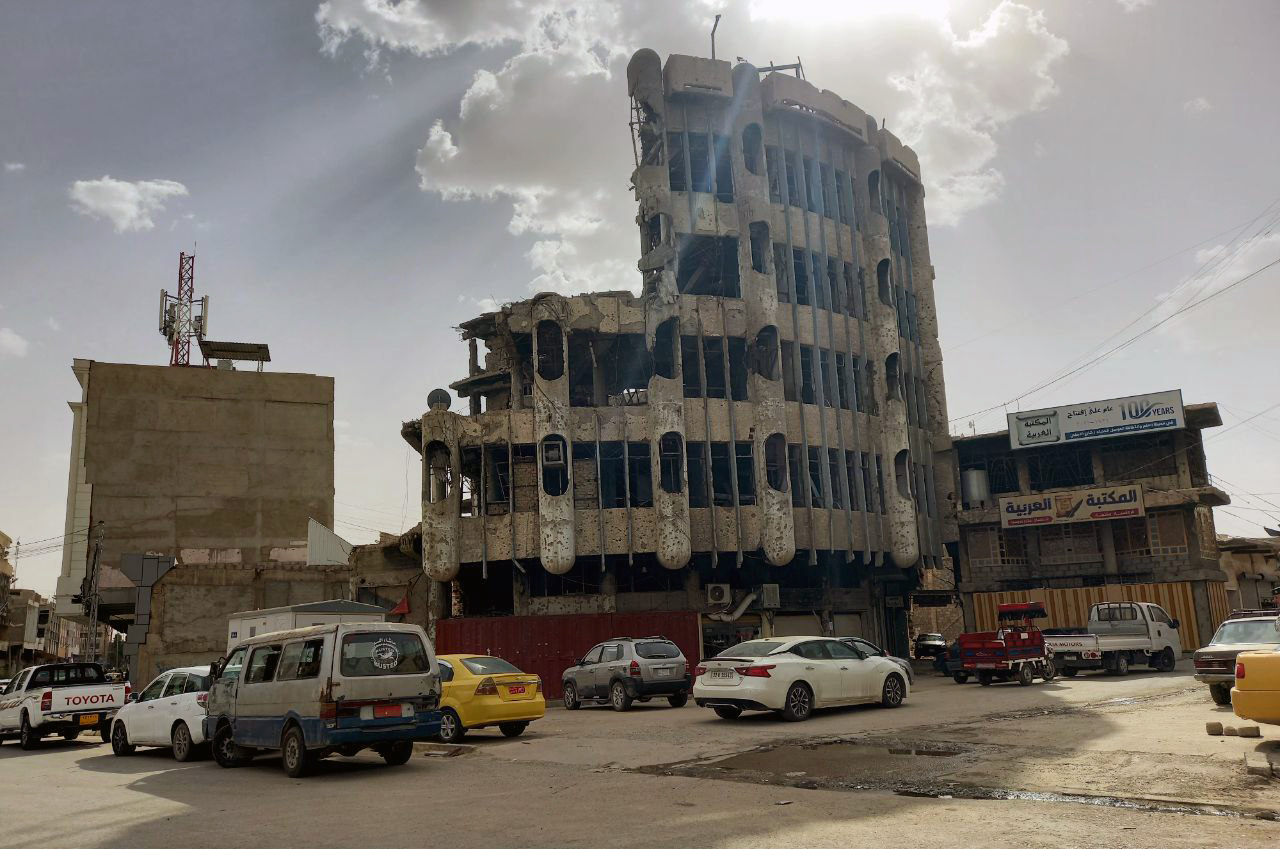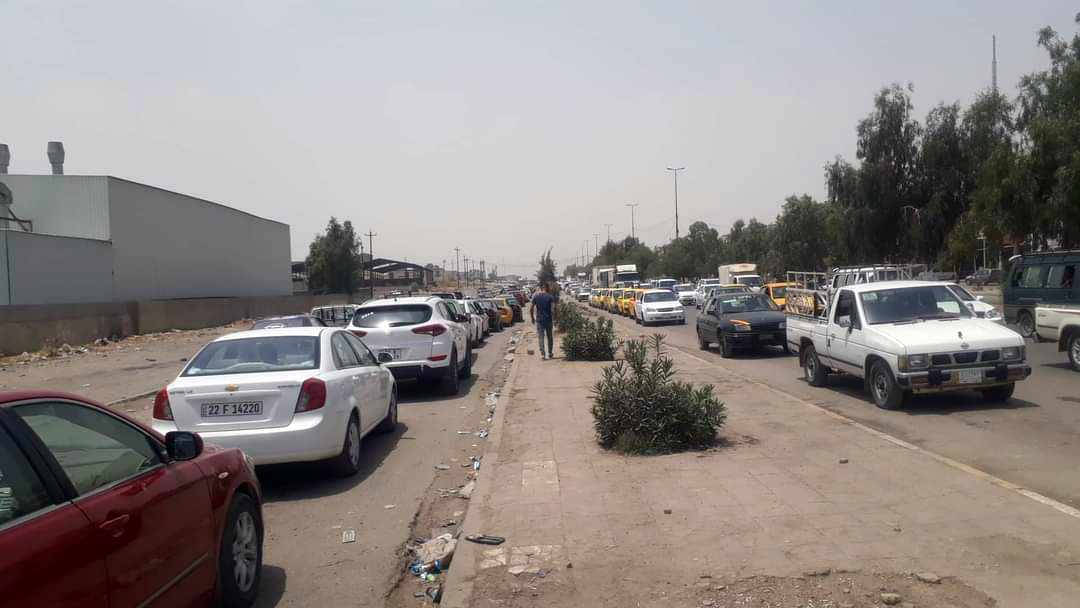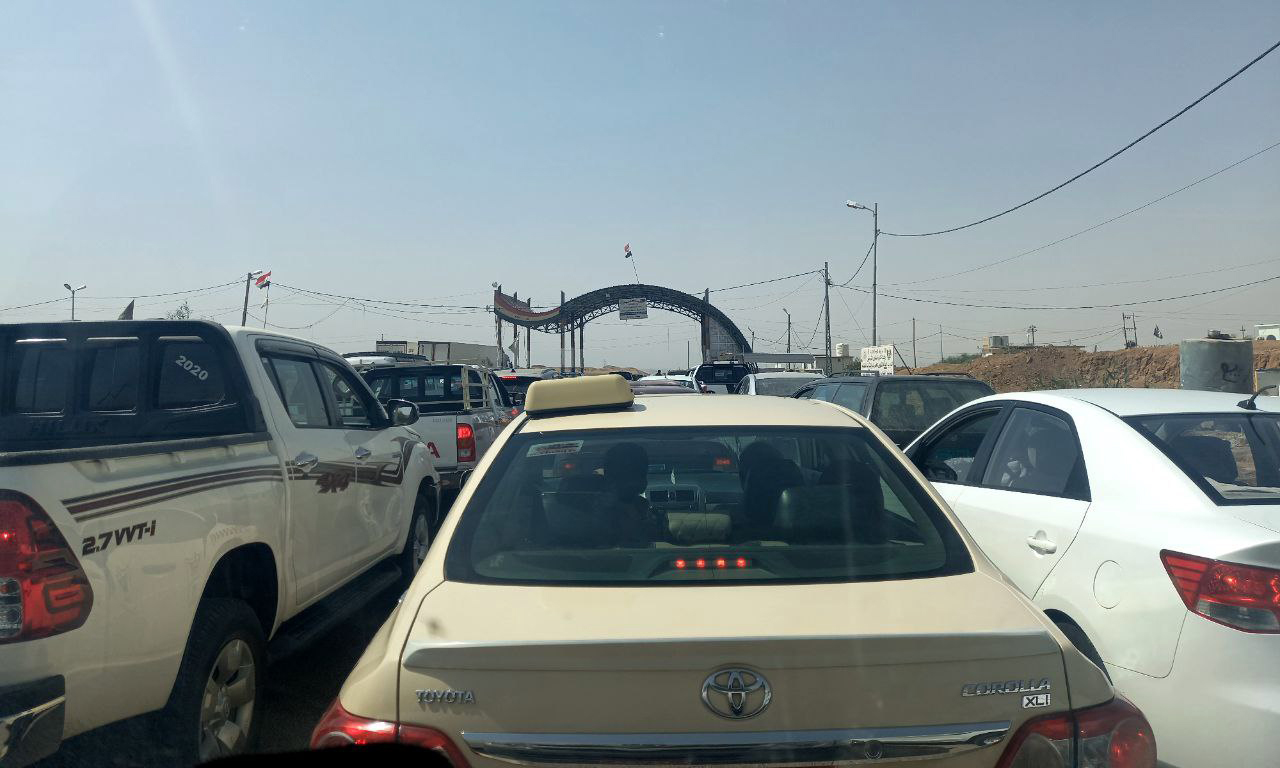The rise in fuel prices pushes some drivers of the semiautonomous Kurdistan Region of Iraq KRI to travel 130 kilometers to and from Dohuk Northern province to adjacent Mosul, center of Ninewa province, to get 40 liters of state-subsidized gasoline, and this sometimes takes them five hours.
Dozens of vehicle drivers go daily from the governorates of the KRI to the disputed territories controlled by the Iraqi government in order to buy gasoline at lower prices.
Mosul is about 65 kilometers from Dohuk and it takes one hour to drive by vehicle, regardless of the delay caused by the inspection procedures at the security checkpoints.
In addition, public petrol stations in Mosul are so overcrowded that drivers have to wait in queues for at least two hours to be able to get petrol.
"The only reason why we came to Mosul is to supply gasoline and nothing else. Everything is available in our areas, but gasoline here is cheaper, while the price of gasoline in Kurdistan is high and its quality is poor," said Bewar Ahmed, a driver from Dohuk.
The price of one liter of gasoline at the Mosul stations is 450 Iraqi dinars IQD (USD0.3), and each driver can supply 40 liters of gasoline daily without a coupon, at a time when there are no procedures that prevent the driver from supplying gasoline from several different filling stations.
This coincides with the continuous rise in gasoline prices in the governorates of the Kurdistan Region, where the price of one liter of super gasoline reached 1550 IQD, premium gasoline is sold at 1475 IQD, while the price of one liter of normal gasoline is 1350 IQD.
Ahmed says that his vehicle is not registered in his name and that this exposes him to problems at checkpoints while on his way to Mosul.
Criticizing the pro-Shiite paramilitary of Popular Mobilization Forces PMF, Ahmed said, "In the past, they also intercepted Kurdish drivers under various excuses, including the security situation, while the reason for our coming to Mosul was only to supply gasoline."

The subsidized fuel policy is followed since many years in Iraq which had a central state-run policy in all sectors up to 2003, when Saddam Hussein was ousted as the Iraqi government through the public sector was providing all services.
Iraq holds the second-largest oil reserves following Saudi Arabia but years of conflict and sanctions have left its refineries in dire straits, with the country now relying heavily on imports of oil products.
No official decision was issued by the governorate administration to prevent the entry of these drivers
Since last October, Ninewa province has witnessed the emergence of a fuel crisis from time to time as it was receiving 2.4 million liters of gasoline a day which has dropped by 300,000.
There are three checkpoints between Dohuk and Mosul, two of which are shared by the local police, the Iraqi National Security Service NSS and the PMF, known for Al-Hashid Al-Shabi, and one is affiliated with the PMF only, but the (KirkukNow) reporter did not notice any objection to the entry of drivers by those in charge of those points.
Karim Orabi, a member of the Communications Department of the 21st Division of the PMF in Ninewa, told (KirkukNow), "We did not prevent Kurdish drivers from entering Mosul, this is not the action of the PMF, on the contrary, we live with the Kurds without discrimination in Iraq, and once there is a problem, we are dealing with it in coordination with the security services."
As a result of the aggravation of the gasoline crisis, the INSS decided in late June to prevent vehicles that are not registered in the names of their drivers or do not have proof that they are residents of Mosul from entering the city, with the aim of relieving pressure on petrol stations in Mosul.

Adib Jassem, the official in the Ninewa Governor's Office, Najm al-Jubouri, told (KirkukNow), "No official decision was issued by the governorate administration to prevent the entry of these drivers, but rather there was a recommendation by the National Security Agency for checkpoints for two days with the aim of taking precautions and preventing anything could harm the security situation of the city.”
Limited subsidized quantities of gasoline are available in the Kurdistan Region, which is supplied by the Iraqi government and is distributed at a price of 690 IQD per liter for taxis and buses only, and a small quantity of KRG-subsidized gasoline has been pumped into public stations in the last few weeks at a price of 800 IQD, but most motorists refrain from filling their vehicles with it because of its " poor quality,” and reported cases of damages caused to engine.
The representative of Ninewa Governorate in the Iraqi parliament, Shirwan Dobardani, told (KirkukNow), "There has been great pressure on the gas stations in Mosul for some time. Some Kurdish drivers used to fuel three to four times a day and sell it on the black market in Kurdistan."
He pointed out that the National Security Agency decided at the end of last June to prevent the entry of vehicles not registered in the names of their drivers, but "we expressed our protest and the decision was canceled after three hours."
He stressed that there were no political motives behind the decision, but rather it was to relieve pressure on Mosul public stations.
There are 28 governmental petrol stations in Ninewa Governorate, 11 of them in the city of Mosul and the rest in the districts and subdistricts, in addition to 130 private stations, according to the statistics of the Petroleum Products Distribution Company.
Iraq holds the second-largest oil reserves following Saudi Arabia but years of conflict and sanctions have left its refineries in dire straits, with the country now relying heavily on imports of oil products despite daily export of over three million barrels of crude oil.





